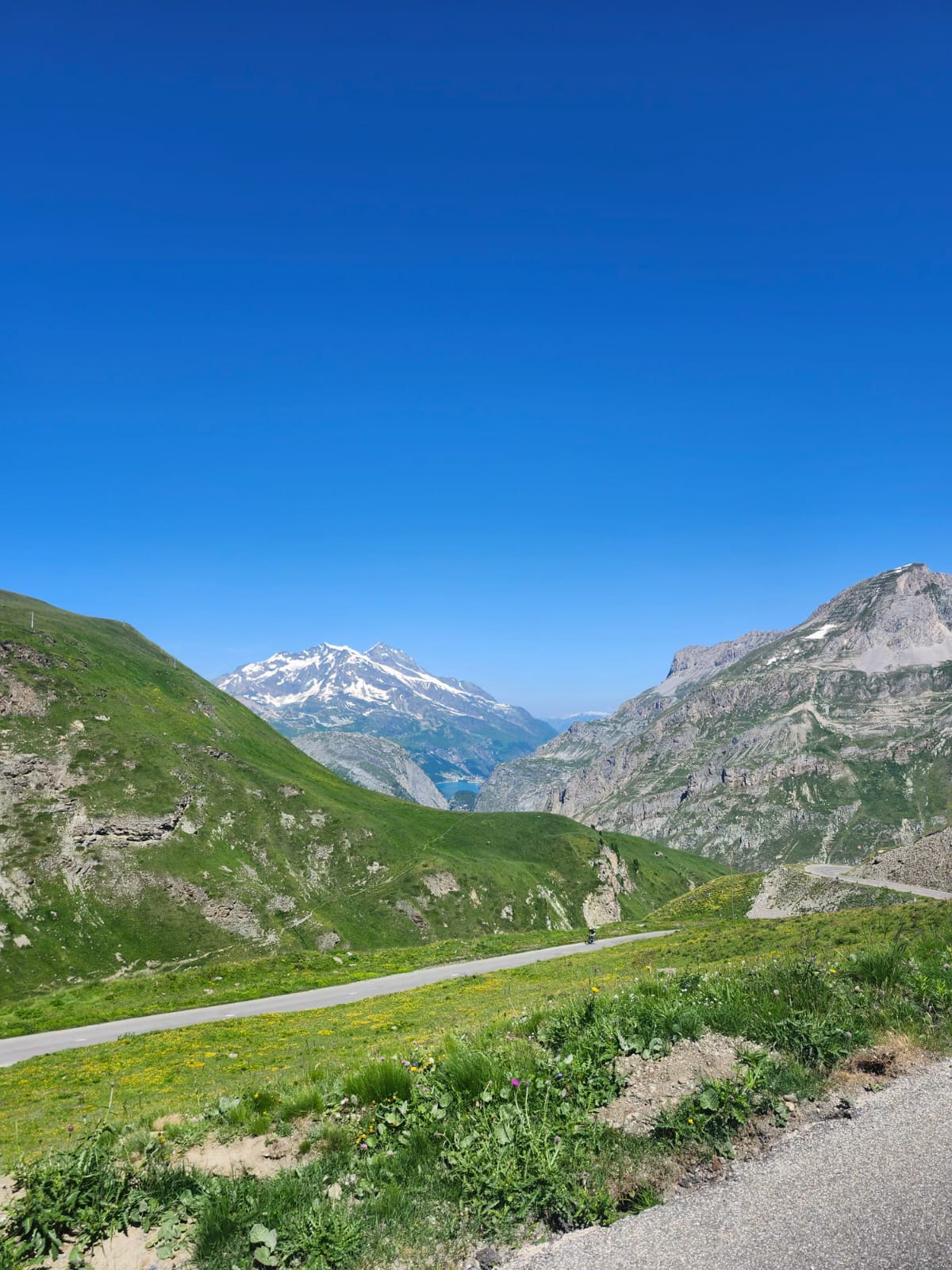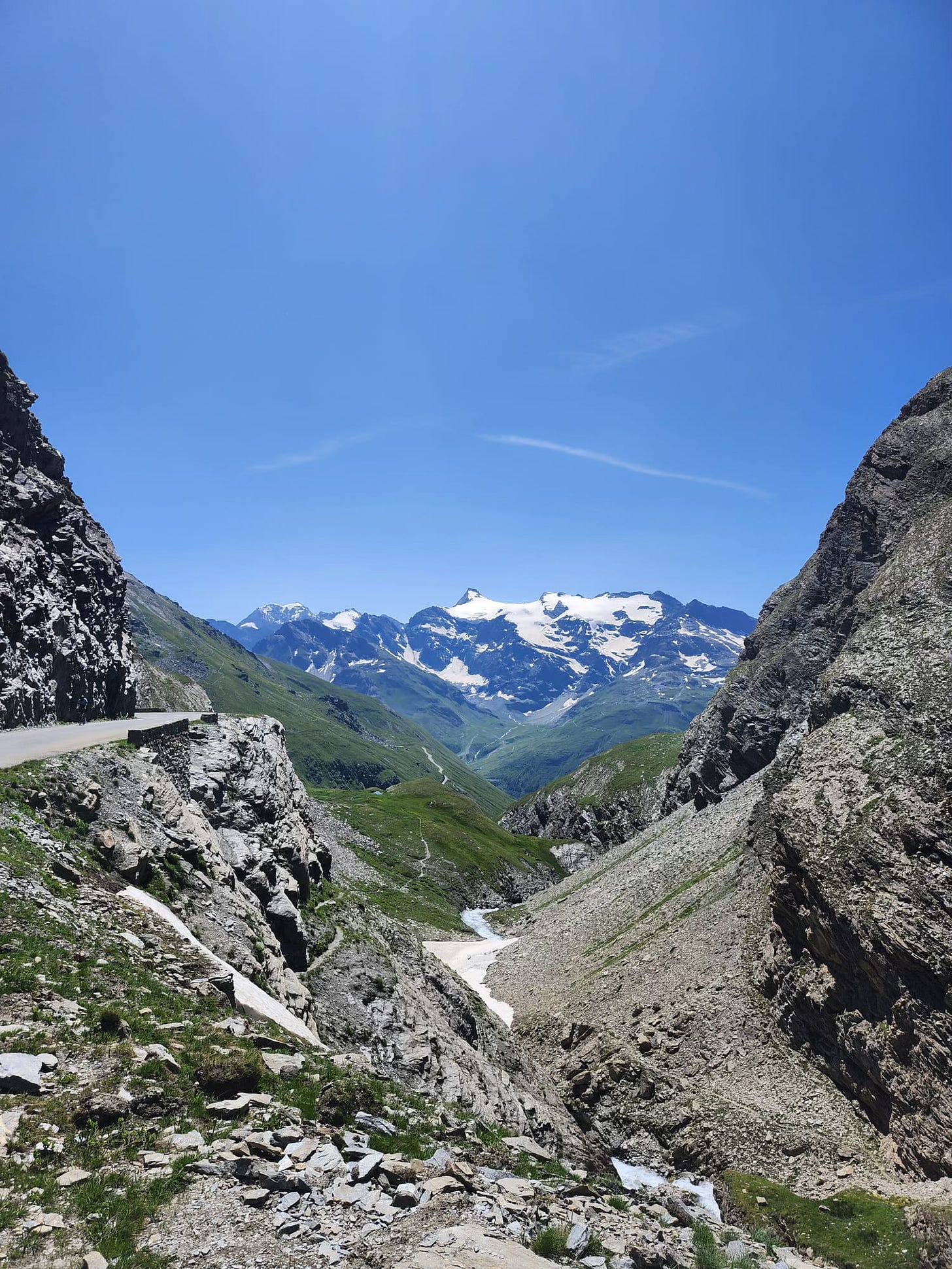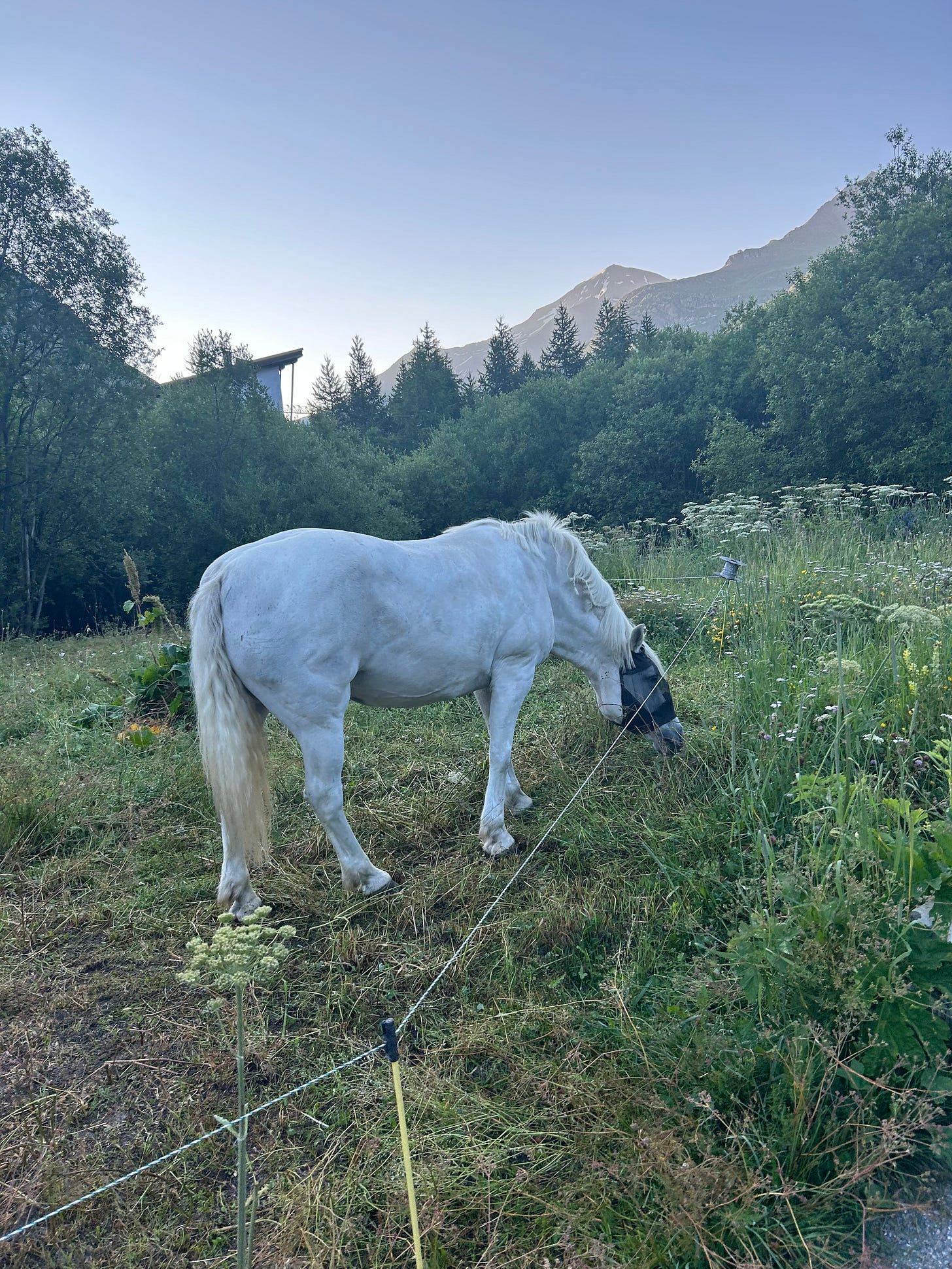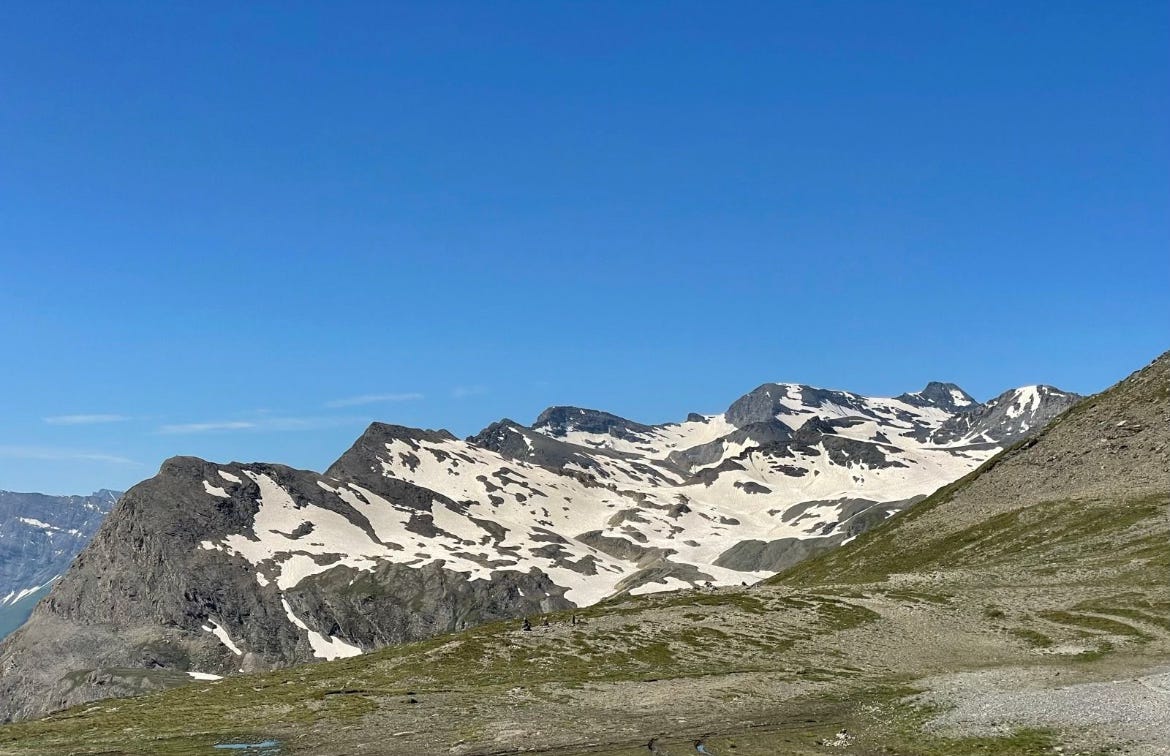
I got a kick out of dinner last night. It was billed as “traditional food.” As far as I could gather this meant a choice of sausages, cheese, cheese or cheese.
I chose cheese.
Fortunately, my cheese arrived with a plate of veggies, unlimited salad and a bag of potatoes. We were told we could have as many bags of potatoes as we wanted.
Cheese, potatoes and salad were a winning combo. Especially when backed up with some outstanding local ice cream.
I awoke to the smell of croissants and the sound of Johno leading the lads on a long run.

Johno made an excellent recommendation to run before the ride. That’s a great tip, generally, when you’re going big.
The first session of the day should be the session you are least likely to do when you’re tired.
For most of us, that’s a swim. No pool in Val d’Isère so we ran.
6K easy for me.
1:45 long run for the speedy guys.
Then a long wait to let the slower riders get up the road. This worked well and we didn’t end up spread all over the route.
If you’re running a camp then figure out ways to help the slower athletes get to the front, occasionally.
Being “behind” can wear on people when they are tired.
Health & Aging Well
We’ve been talking about athlete health, testing protocols and the aging process.
I made a few notes for you to consider.
What are the changes I’ve made to help my overall health?
Take alcohol to zero.
Take coffee to zero.
More generally, my caffeine is almost zero. I’ve had 6 colas in 2024 and don’t use caffeinated sports nutrition. Two main reasons here:
I want to feel my natural fatigue signals. “Recovery on demand” works best when I can feel fatigue. Over the years, I overrode a lot of fatigue with (a lot of) caffeine.
I was addicted to my “next coffee” and that was a hassle. It’s difficult to see the mental drain of addiction until you get outside of it.
Eat fewer eggs. I was eating a ton and my writing partner for our Nutrition Chapter (Ien Hellemans) encouraged more variety in my diet.
Related, we took our coconut oil consumption to almost zero. We switched to avocado oil for cooking.
The changes above are small details in an overall approach that’s effective:
Eat real food.
Get adequate sleep.
Strength train.
Exercise daily.
If you are hitting those four then you’re doing what it takes.
I have seen friends surprise themselves with their ability to change in the face of heart disease, cancer, A-fib or the death of a close friend/relative.
The question to consider…
Why wait?
Knowing the impact of my lifestyle accumulates over time, I decided to make the above changes pro actively.
One thing about all the exercise my peer group does. We need to be careful that we don’t set ourselves up for chronic inflammation.
I’m hoping my liberal use of Easy Days will enable me to enjoy trips like this for many years.
I am extremely consistent with my training and I don’t do much hard stuff.
Here’s something you should notice…
Pay attention to how short your memory is with recovery.
Many athletes smash themselves on Monday, and by Wednesday are convinced they haven’t done anything all week.
If that’s you then you’re at risk for chronic beatdown.
Chronic fatigue arrives slowly.
Nadja and I were talking about testing for older athletes.
I shared that my electrocardiogram, when I did a run test to max, gave me surprising comfort. I’d recommend that to you… in addition to your routine cancer screenings.
The other things you could do:
Flashing lights front/rear on your bike.
Garmin radar integrated light (rear).
Reduce time spent on roads with traffic.
Avoid all busy roads.
Long-term risk is numbers game => a few small changes will greatly improve our odds.
Finally, what is aging well?
We each have to decide for ourselves.
For me…
Being able to enjoy trips like this - different than merely attending.
Feeling good inside my body most days. I don’t mind getting tired occasionally but my family life is strained when I slide back into the level of fatigue I carried as an elite athlete.
Race performance? I’m still not sure. I’ll be racing more next year. Will be interesting to see how that goes.
The endurance lifestyle has risks associated with it. However, these risks are outweighed by giving ourselves a massive buffer in functional capacity.
When our approach to endurance sport reduces our functional capacity… then it’s time to change.












That’s for sharing. You’re on a trip that’s truly envious and I look forward to reading about next weeks half.
Ageing well is a relevant topic having recently turned 50 and been checked out with my local Doc
Still waiting on bloods but turns out my BP is higher than the doc would like and needs ongoing measurement before deciding what is next.
That’s despite ~30 years of regular exercise (albeit probably too hard at times) and watching diet. (Everything in moderation and healthy BMI of 25, dexa body fat at 15.8%). Just like a poor diet you can’t out run if genetics aren’t on your side
Almost as relevant, went to what in Aust we call a physio therapist as I had some niggles that stopped me from running for the first time in I can’t remember.
Physio says you’re out of balance, 30 mins of deep work in the rooms + some ongoing stretches for homework. This is despite 10+ hrs/ week of training and daily yoga/ mobility. Physio’s view is that all that time sitting at work has caught up with you!
My take aways from the above - don’t be so arrogant as to think you know you’ve got it figured out (eg mobility) and get tested - again, don’t assume your health is under control because you train daily etc. Get yourself checked out
🙏🙏🙏